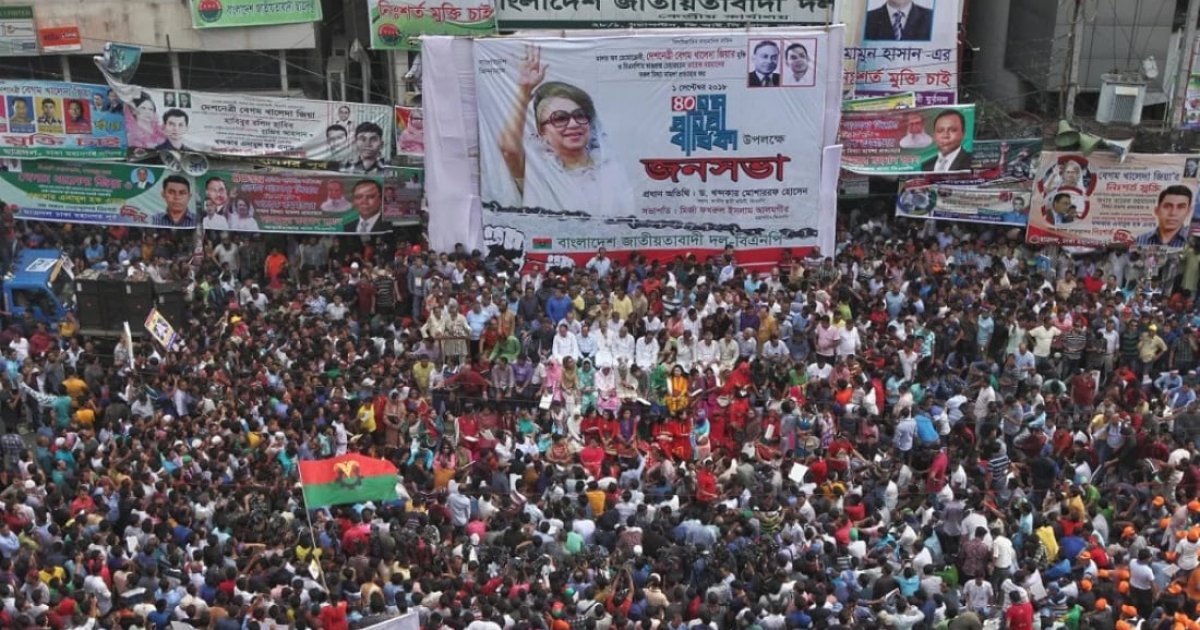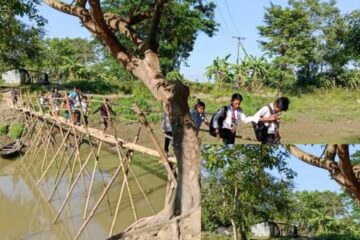The Bangladesh Nationalist Party (BNP) has finalized its list of candidates for 237 constituencies in the upcoming 13th national parliamentary election, with decisions on 23 seats still pending and 40 additional seats set aside for allied parties.
The decision was confirmed following an extended meeting of the party’s Standing Committee on Monday, held at the chairperson’s Gulshan office.
The meeting, which ran from noon to evening, saw extensive debate over candidate selection for 260 constituencies before the list was narrowed down.
Party Secretary General Mirza Fakhrul Islam Alamgir told reporters after the meeting: “We have finalized nominations for 237 constituencies. For the remaining seats, we are consulting our allies and will make adjustments as needed. These are our most suitable and capable candidates.”
However, the BNP with held one nomination just a day after revealing its list of candidates.
According to a press release signed by Senior Joint Secretary General Ruhul Kabir Rizvi on Tuesday, Kamal Zaman Mollah had been nominated for the Madaripur-01 (Shibchar Upazila) constituency.
That nomination, along with the candidate’s name, has since been postponed due to unavoidable circumstances.
Khaleda Zia named for three constituencies
BNP Chairperson Khaleda Zia will contest from Feni, Dinajpur, and Bora, despite earlier indications she might sit out the election.
Acting Chairperson Tarique Rahman reportedly finalized her nominations after discussions with his mother.
Party insiders said her inclusion carries symbolic significance, though her participation will depend on her health.
Three backup candidates have been listed should she be unable to campaign or contest.
‘One leader, one seat’ policy
In a shift from previous elections, BNP leaders — including Tarique Rahman — will contest only one constituency each.
The party has introduced a “one leader, one seat” rule to curb internal competition and consolidate resources.
A Standing Committee member told Dhaka Tribune: “This time, no family has more than one candidate. The leadership wants to demonstrate integrity and discourage dynastic politics.”
Selection process
The final list emerged from a three-tiered process led by Tarique Rahman.
Initial surveys identified potential nominees, followed by month-long consultations in October with grassroots organizers.
The Standing Committee approved the final slate on Monday.
Committee member Iqbal Hasan Mahmud Tuku said: “We prioritized candidates with clean images, local popularity, and organizational strength. The selections reflect our commitment to both winnability and public credibility.”
During the announcement, several leaders expressed satisfaction.
Organizing Secretary Kalim Uddin Milan became emotional, thanking colleagues for the “collective effort.”
Another leader, Shariful Alam, described the nominations as “well-balanced and fair.”
Balancing allies, unresolved seats
BNP’s list also accounts for coalition partners, including those who participated in the anti-fascist movement.
Of the 300 constituencies, 23 remain undecided, while 40 have been earmarked for allies such as Jamaat-e-Islami and other smaller groups.
Dr Khandaker Mosharraf Hossain, a Standing Committee member, said: “Candidates from our joint movements and alliance partners will contest in designated seats. Discussions are ongoing to finalize the rest.”
Veteran BNP leader Barrister Jamir Uddin Sircar has opted out once again, following his absence from the 11th parliamentary election.
His son, Barrister Nawshad Jamir, will contest instead — continuing the family’s political lineage.
Party sources said the selection reflects a balance between symbolism and strategy — a mix of veteran figures, grassroots organizers, and new-generation candidates.
The Standing Committee hopes the slate will project unity and readiness ahead of what is being framed as a decisive test for the opposition’s electoral comeback.


